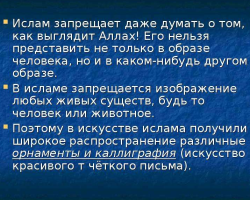Foreigners see in the bear a certain national symbol of Russians, and that is why they are trying to get to the bottom of the phraseological units in which this strong and fearless forest beast appears. After all, it is very difficult for them to understand the original Russian people who, from time immemorial in their sayings and sayings, put a certain deep meaning.
Content
- The origin of the expression "Bear in the ear has come"
- Bear in the ear has come: brief meaning, explanation, phraseology
- How to make a proposal with the phraseology "Bear in the ear has come"?
- What synonyms can be chosen for the phraseological unit “Bear in the ear has come”?
- Video: TOP phraseological units
What does it mean and how to understand the expression “a bear in the ear has come”? After all, this is almost impossible for the awareness of foreigners. We, having heard this saying expressed at someone’s address, do not sympathize with him at all, but only make fun of him silently. After all, we understand what this phraseology means.
The origin of the expression "Bear in the ear has come"
- The ancient Slavs considered the bear a sacred animal. If someone suddenly decided to hunt him, then the fellow tribesmen believed that this brave man was engaged in a fight with the forest spirit himself. And in those days the forest was identified with an alien world, full of hidden and hostile forces.
It was believed that the bear is a true owner of the forest endowed with human properties: wisdom, strength, power.
- In order not to be afraid to go on a bear hunt, our ancestors needed remarkable valor, strength and courage - hence the such stable expressions went: “Do not share the skin of an unfinished bear”, “The bear in the ear has come”, “Do not climb into the ore "(Rozhon is such a pointed stick with which they went to the bear)," clumsy like a bear "," bear service ".
- Not everyone was able to cope with the beast. In wild malice, a giant animal could overturn and crushed a daredevil to him on him. Most often, such people died. But if someone was lucky to stay alive, then a person usually could not return to a full life. After such a hunt, many have come deafness, and they were no longer able to adequately perceive the world. It was from here that the expression on the ear, an expression came out.

- And if in those days there was a real background in all this, now the expression "Bear in the ear has come" It implies only imperfect human musical abilities.
Bear in the ear has come: brief meaning, explanation, phraseology
- What means "Bear in the ear has come"?Can be very briefly deciphered the meaning of phraseology- Here we mean a person who does not have musical hearing and musical abilities absolutely. Briefly and understandable, so to speak, a person devoid of musical hearing, a non -musical person who fake.
- "Bear in the ear has come" - this phraseological turn is hyperbolaor otherwise - exaggeration. And there is no need to talk about his exact origin. Here the bear is represented as a certain gross force, which led to the sad consequences - the loss of hearing, and musical as well.

How to make a proposal with the phraseology "Bear in the ear has come"?
- A proposal with phraseology "Bear in the ear has come" It is made up without difficulty, as if by itself. You can often hear such a phrase, such as: "Our Tatyana bear has come in the ear - and she is all eager to sing in karaoke."
- Or approximately the refusal of the applicant to accept him at the Music School sounds: “We will not accept you, because as a child, a bear has stepped in your ear.”
- And a person who refuses to attach his voice to those who decided to sing at a party to friends can say very self -critical: “I won’t sing, and don’t ask-because I am a non-music person: I didn’t just step in my ear, but also put on it back and forth.”
What synonyms can be chosen for the phraseological unit “Bear in the ear has come”?
- There are phraseological units that are similar to the subject with the idiom "Bear in the ear has come". If they want to say about the lack of hearing in a person, then they say: "He was an elephant in his ear."
- If a person is deaf, then sometimes he is called “Deaf black grouse” or tight in the ear.
- But no matter how surprised the foreigners are our expression “the bear in the ear steps”, synonyms in their performance sound no less strange and interesting than ours. For example, in the UK they say about singers who do not particularly own the art of vocals: "To have van gogh’s ear for music"what is translated means "He is in music, like a single -eared van gog".
- In Italy, they will exclaim emotionally about this: "E Stonato Come Una Campana" - It sounds translated: "Fake as a bell."
- But "Bear in the ear came" in Englishliterally sounds like "The Bear Has Stepped On the Ear."

All these statements can cause only a resentment against others and the annoyance of himself, but there is no need to despair on this subject, because not all God awarded with vocal talent. There is a lot of necessary and interesting in the world, what your hands and skill can be attached to. One has only to want and work on yourself-and it is quite possible that people with excellent vocal data will envy your success in some other field.
We advise you to read the following interesting articles:
- Corridgeal stone: The origin and meaning of phraseologism
- Unusual, rare and winged phraseologisms in Russian
- “I got up from that leg”: the meaning and origin of phraseological unit
- What does the phrase "mosquito will not flow"
- Where came the expression "and the hedgehog is clear"







